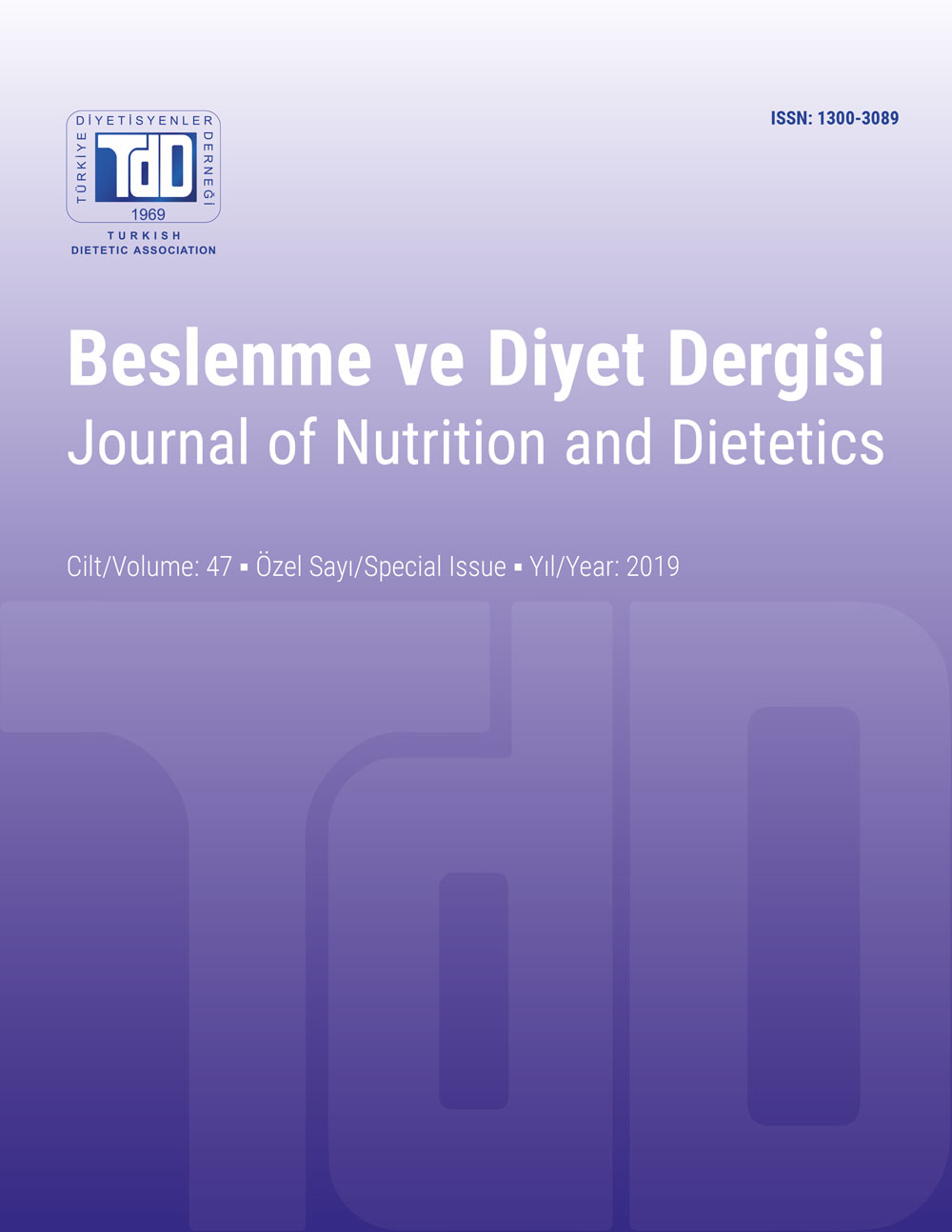Polyphenols, Microbiota and Diabetes
DOI:
https://doi.org/10.33076/2019.BDD.1321Keywords:
Polyphenols, microbiota, diabetes, dysbiosis, dietary componentsAbstract
Microbiota is defined as a community of microorganisms living on/within the host. In recent years, the physiological effects of intestinal microbiota are interesting research topic because of its microbial diversity. The microbial diversity and balance are closely associated with development of diabetes and obesity. The intestinal microbiota composition is effected by several factors such as delivery method, antibiotic use, lifestyle and eating habits. Eating habit is the most important replaceable risk factor for microbial diversity. High fibre, low fat diets, Mediterranean diet style, use of pre/probiotics have positive effect on intestinal microbiota health, diversity and balance. Healthy diet models such as Mediterranean diet and DASH (Dietary Approaches to Stop Hypertension) diet have inverse relationship with chronic diseases prevalence and development of dysbiosis. These healthy diet models have high polyphenol content from fruits and vegetables. Almost 90-95% of dietary polyphenols are metabolized by colonic microbiota to their biologically active metabolites. These metabolites have effect on colonocytes and pathogen microorganisms, because of these effects and their metabolism there is a bidirectional interaction between polyphenols and microbiota. In addition, polyphenols play an active role in the regulation of carbohydrate metabolism, regulation of insulin signaling pathways and in the maintenance of β – cell function with their antioxidants properties. Polyphenols are an important component of medical nutrition therapy at the level of primary, secondary and tertiary protection in the treatment and prevention of the disease because of the potential positive effects both on microbiota composition and pathogenesis of diabetes.

